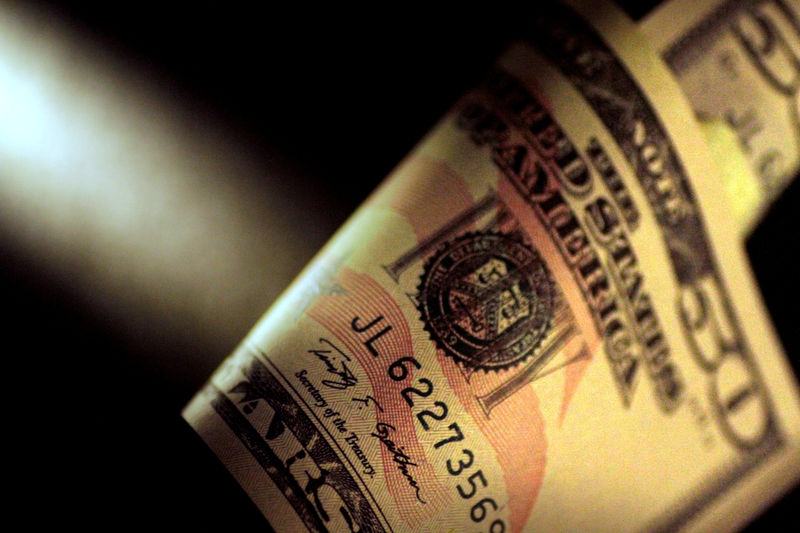By Jemima Kelly
LONDON (Reuters) - The dollar fell across the board on Thursday, hitting a 15-month low against the yen, as negative sentiment around the dollar outweighed a rise in 10-year U.S. Treasury yields to their highest levels in four years.
Analysts struggled to explain the dollar's broad weakness, which came as the yield on 10-year Treasuries climbed towards 3 percent, and as stock markets and commodities steamed higher.
The greenback briefly jumped on Wednesday after data showed U.S. inflation was stronger than expected in January, bolstering expectations that the Federal Reserve could increase interest rates as many as four times this year.
But it quickly turned lower, eventually posting its worst daily performance in three weeks against a basket of major rivals (DXY). It added to those losses on Thursday, with the index hitting a two-week low of 88.585.
"We can't find any convincing fundamental arguments for the dollar's weakness; it's more sentiment-driven," said Commerzbank (DE:CBKG) currency strategist Esther Reichelt, in Frankfurt. "I would expect a dollar correction (higher) in the medium term."
Some analysts suggested mounting worries over twin deficits in the United States, amid a government spending splurge and large corporate tax cuts, as a reason for dollar weakness.
The U.S. national debt has topped $20 trillion, while the 2019 fiscal deficit is projected at near $1 trillion, including deficit-financed tax cuts and two-year spending caps that Congress passed last week.
"The story I hear most frequently from people is it's the re-emergence of the twin deficits," said RBC Capital Markets head of currency strategy Adam Cole, in London, of the dollar's persistent weakness. "There seem to be concerns on the U.S. fiscal position and what that implies for the current account."
Cole said news events that would normally be seen as buying opportunities for the dollar, such as Wednesday's inflation data, were only having temporarily positive effects.
Another reason given for the dollar's falls after Wednesday's data was that U.S. consumer price growth was seen as a gauge for global inflationary pressures and that, as such, stronger growth would suggest a faster pace of monetary tightening from other central banks.
Against the yen, the dollar skidded as much as 0.8 percent to 106.18 yen, its lowest since November 2016

The euro briefly climbed back above $1.25 for the first time in two weeks, trading up as much as half a percent on the day (EUR=), before easing back to just below that level.